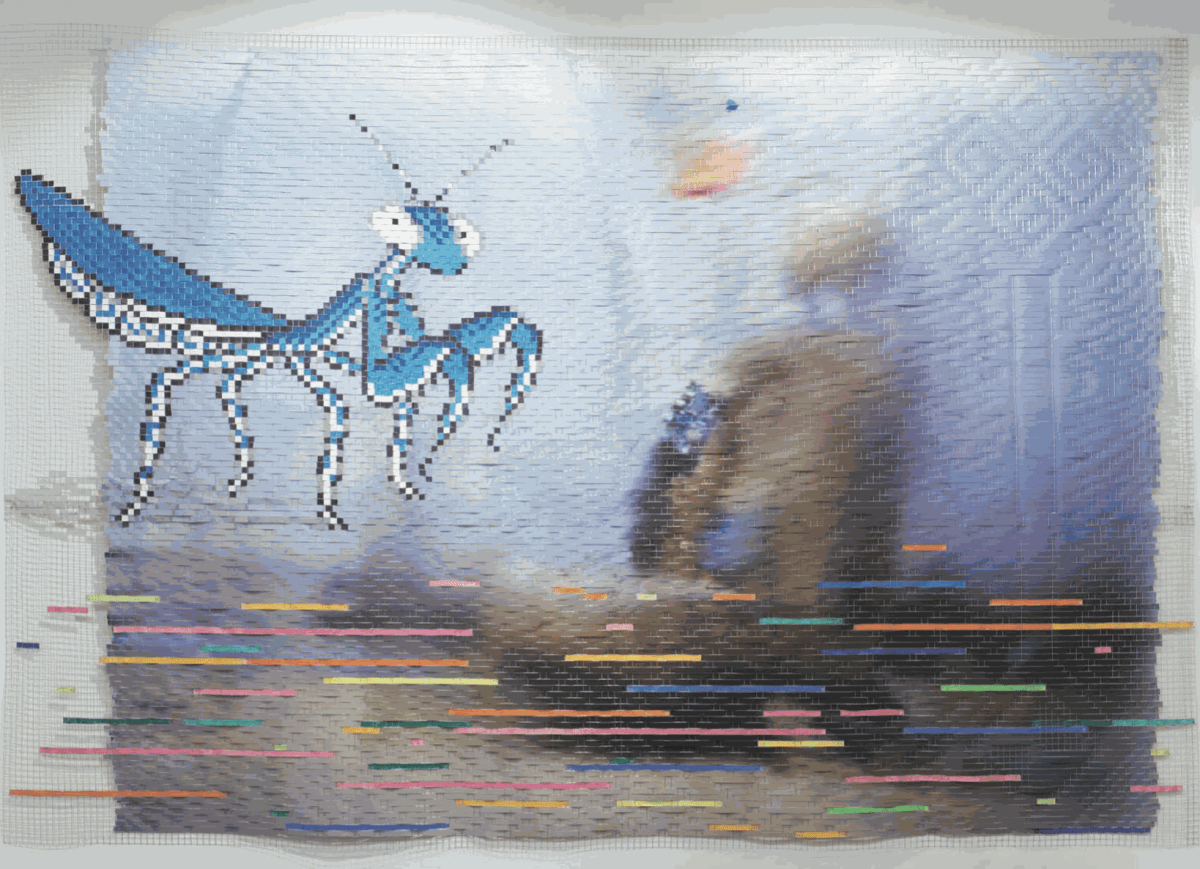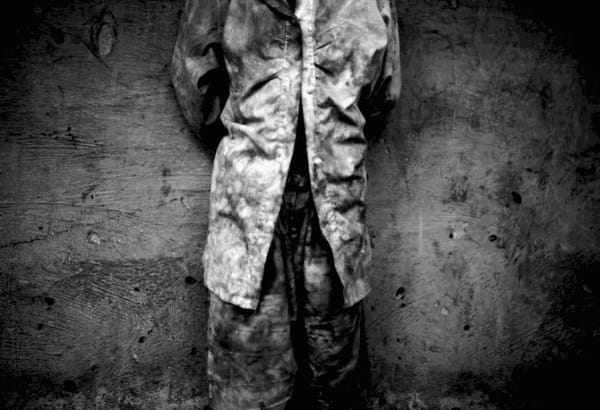"Through my art, I weave the threads of my identity, historical events, and global dynamics into a tapestry of reflection, revealing the intricate beauty found within the complexities of cultural exchange and economic transition."
Beau Disundi Nzazi, born in 1993 in Kinshasa, DRC, is an artist whose creative journey spans between his homeland and Brussels, Belgium. His artistic exploration delves into the intersections of history, economics, and cultural impact, with a particular focus on the symbolic significance of codfish.
Nzazi's educational background reflects his dedication to the arts. He pursued a Bachelor's degree in Interior Architecture at the Académie des Beaux-Arts de Kinshasa, followed by a Master of Fine Arts in the same discipline. Later, he expanded his horizons by obtaining a Bachelor of Arts degree from the Ecole Supérieur d’Art de Dunkerque in France. Currently, he is engaged in a Master of Fine Arts program at ENSAV LaCambre in Brussels.
Central to Nzazi's artistic inquiry is the historical narrative surrounding codfish. He examines how this seemingly mundane marine creature played a pivotal role in global trade and economic expansion, particularly during the emergence of capitalism. Nzazi's project revolves around tracing the journey of codfish from its introduction to the Kongo Kingdom by the Portuguese to its widespread commercialization and impact on Western economic expansion.
His artistic practice encompasses a diverse range of mediums, including sculpture, drawing, installation, weaving, and engraving techniques. Nzazi employs codfish both as a concrete element and a metaphor, weaving its symbolism into his explorations of economic transitions and cultural exchange. In fact, one notable aspect of Beau’s work is his innovative use of materials. He experiments with codfish cardboard, a commonly used material in Kinshasa, to create intricate engravings and sculptures. He also incorporates techniques such as woodcutting and silkscreen printing, utilizing them to explore themes of binary opposition and troubled identity.
Through his art, Nzazi seeks to convey the complex interplay between personal identity, historical events, and global dynamics. His work serves as a reflection on the experiences of individuals caught in liminal spaces, navigating the tensions between acculturation and alienation. By materializing these connections, Nzazi invites viewers to contemplate the nuanced nuances of cultural identity and historical legacy.
 Beau Disundi NzaziSingularité Technologique, 2021Ink print on canvas and metal grid168 x 234 x 42 cm
Beau Disundi NzaziSingularité Technologique, 2021Ink print on canvas and metal grid168 x 234 x 42 cm Beau Disundi NzaziBleu Cobalt, 2022Pastel, ink print on canvas and metal grid240 x 160 x 40 cm
Beau Disundi NzaziBleu Cobalt, 2022Pastel, ink print on canvas and metal grid240 x 160 x 40 cm Beau Disundi NzaziTurquoise de Cobalt, 2022Pastel, ink print and acrylics on canvas and metal grid170 x 265 cm
Beau Disundi NzaziTurquoise de Cobalt, 2022Pastel, ink print and acrylics on canvas and metal grid170 x 265 cm Beau Disundi NzaziStockage ADN, 2023Acrylics on canvas and metal grid175 x 165 x 6 cm
Beau Disundi NzaziStockage ADN, 2023Acrylics on canvas and metal grid175 x 165 x 6 cm







